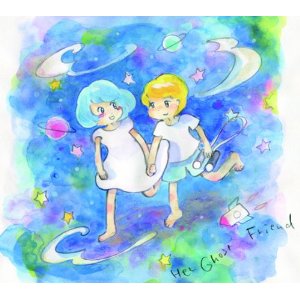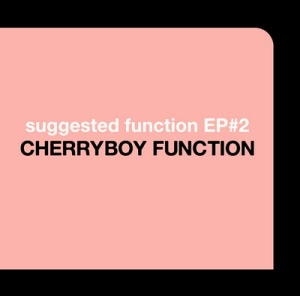
10. Avec Avec “Kuzuha No Sunday”

I’ve been told the Kansai region of Japan has always had an electronic music scene. Yet 2011 felt like a beginning, or at the very least a boom, for forward-thinking electronic sounds. Gravitating around several labels and events, artists like Madegg, Seiho and And Vice Versa started flooding SoundClound with tunes you’d expect from Los Angeles’ Brainfeeder label, if not other more buzzed-about cities. Yet out they poured, if not a big bang at least a thrilling development for a part of Japan often shivering in big brother Tokyo’s shadow.
Plenty of worthy tunes from any number of Kansai-based producers could have repped the region in this spot, but Avec Avec’s “Kuzuha No Sunday” lands it because nothing from the area sounded brighter or more joyous. The song drips with warmth, from the easy-breezy weekend stroll of a beat to those synths which sound laid back enough to put off all chores to watch just one more football game. Yet the honey binding “Kuzuha No Sunday” is that glitchey vocal sample, Avec transforming singing into sunbeams. The “Kuzuha” in “Kuzuha No Sunday” refers to the town Avec calls home, a not particularly thrilling destination if Wikipedia is to be trusted. Yet if this song is any proof, there isn’t any other place he’d rather be on a lovely weekend afternoon, located in a place way more interesting than it seems.
[soundcloud url=”http://api.soundcloud.com/tracks/19625556″]
9. Perfume “Spice”

There is a moment late in “Spice” where one of the members of Perfume slips free from the vocal-effects software roped around her neck to sing in her natural, human voice. It’s not the first time this has happened, but it serves as the climax for “Spice” and in that slot feels bigger than it should, a member of a group often accused of being nothing more than dancing computer software emerging into the world all Weird Science style. This doesn’t last long, the group soon returning to the digital filters that probably feel like indoor slippers to them. But for those few seconds it’s a great touch in a track filled with them.
Many accused Yatsukata Nakata of phoning his production duties for Perfume this year, and Nakata himself didn’t help when he told The Japan Times the commercial obligations of the trio put him in a creative headlock. Yet as much as the three women serving as the figureheads need Nakata’s sounds to bring them to life, he needs that pop pressure present to force him to make music not focused on being in any cool kid’s club (spoiler: World Of Fantasy didn’t sniff the albums list). Hopefully Nakata knows what a good job he did with “Spice,” an honest-to-goodness departure for Perfume that moves just a little slower and packs in so many swoon-worthy details (the bloops! The out-of-step beats! The way he turns voices into columns of light!). If “Spice” sounds like something Nakata could do in sleep compared to his (often needlessly!) complicated Capsule work, tailored for the chu-hi purchasing masses, it probably is because it is but thank goodness for that because “Spice” should be for everyone. And like that voice rising above everything else late in the song, “Spice” finds Perfume as human after all.
[youtube=”http://www.youtube.com/watch?v=1R-fu2jHvrw”]
8. Moscow Club “Daisy Miller Part 1” and “Daisy Miller Part 2”

In Henry James’ short story “Daisy Miller,” the author devotes his time to detailing the lives of Americans living abroad in Europe, watching them often hilariously try to fit in – or do their best not to – in ways that hit way to close to home for an American living in another county like me in 2011. It’s a smartly written and often funny story, but something tells me Moscow Club weren’t aiming to poke fun at Americans throwing parties in Italy. With this pair of songs named after the story, they zeroed in on the other aspect of “Daisy Miller” that stuck with me – the way romance (and life) often gets lost in the shuffle, how just coming out and saying you like someone proves to be insanely difficult and the often devastating results of waiting too long to make those feelings known.
And yeah, it’s kind of cheating to put two songs in this one spot, but these tracks belong together, Moscow Club practically writing them to work as a short story of their own. “Part 1” exists as a daydream, any percussion left out in favor of smoky guitar playing and near-unintelligible singing. Chick from Canopies And Drapes shows up to serve as the backup singer, her beautiful additions making the song feel even more like a particularly bittersweet memory. “Part 1” reminds me a bit more of James’ work overall, the lightness of the whole thing lending it the feel of nostalgia, one undercut by a nagging sadness, just like the gut-punch of a tragedy that befalls the main characters in “Daisy Miller.”
Yet Moscow Club gave us a “Part 2.” Opening with a guitar line that feels like it enters the picture upon the end of “Part 1.” It sounds more of the moment, joined by a little percussion, as if the cloudiness of the last song is suddenly clearing and the person our heart pines after suddenly stands where all that fog used to be. Then the song barrels ahead, the year’s best indie-pop song. Its just “Part 1” played faster, but Moscow Club knock it out of the park and give us the same advice James did– regret sucks, so don’t mess up now.
[soundcloud url=”http://api.soundcloud.com/tracks/19226919″]
[soundcloud url=”http://api.soundcloud.com/tracks/20617773″]
7. Salyu X Salyu “Muse’ic”

Yes, the title is a pun, but one delivered with the emotion of a Best Actor monologue. It helps to understand where Salyu the artist came from – she’s been in the J-Pop eye for a long time now, showing flashes of brilliance you expect from Bjork rather than the force keeping SMAP a major player. She also has a magnificent singing voice. Yet for most of her career she’s been locked down doing middle-of-the-road pop, those moments that drop jaws only reinforcing the idea all the other music she records sounds like a waste. This year, though, she got her chance to pursue artier dreams thanks to a collaboration with producer Cornelius, resulting in the Salyu X Salyu project.
“Muse’ic” sounds less like a song and more like a rebirth, music giving Salyu the freedom she clearly craved over the years. She returns the favor by shouting the praises of music, spending the duration spilling her love for musical art all over Cornelius’ sonic canvas. She splits herself into many Salyus, each one raising angelically to the heavens to proclaim her undying passion for “the melody, rhythm, harmonnnnnnnny.” The part that gives me the coldest chills, though, remains a bit late in the song where the ecstatic congregation of Salyus hushes for a moment and Cornelius skinnies-up his production as the one, musically rebaptized Salyu falls to her knees and whispers “fill me” to her muse, a covenant formed. Music set Salyu free in 2011, and she took the chance to write the song most in love with music over the past year.
[youtube=”http://www.youtube.com/watch?v=65r830HQFRg”]
6. Merpeoples “Ikenai Rouge Magic”

Imawano Kyosiro and Ryuuichi Sakamoto originally wrote “Ikenai Rouge Magic” in 1982. Almost 20 years later, Tokyo’s Merpeoples covered the song and were able to make it their own. How they did it? By simply out-giddying Kyosiro and Sakamoto, and ultimately everything in Merpeople’s own back catalog. On “Rouge Magic” Merpepoles made a huge artistic leap forward by embracing lightness, all bongos and synths and guitars bouncing around like superballs. They had to turn to the past to find it, but with “Rouge Magic” Merpeoples discovered their true identity.
While we are here, let’s talk about the video which captures one of the most exciting music scenes in Tokyo. The clip starts inside the Violet And Claire store that serves as a base for the Twee Grrrls Club. Then the band whizzes through the streets of Shibuya and arrives at Club Echo, where Merpeoples meet up with Love And Hates (HNC and Moe from Miila And The Geeks), Sumire Twee and the drummer from Miila And The Geeks. There, they toast, presumably to one of the brightest young music scenes in Japan today.
[youtube=”http://www.youtube.com/watch?v=vUfWgOE_ePQ”]
5. Jesse Ruins “Dream Analysis”

Tokyo remains one of the most fascinating cities on Earth to millions of people because it’s a buzzing, sprawling mystery. Western movies often paint the metropolis as a neon-lit maze that’s practically impossible to properly finish – see the language-hindered hijinks of Lost In Translation or the brain-spinning rush of Enter The Void. Hell, Tokyo Drift even just seemed to focus mostly on cars. Living in Osaka but traveling to Tokyo infrequently, I still picture it as a giant train map where people go from a small Point A to a bunch of slightly bigger points scattered all over the grid, eventually returning to Point A and a shrouded private life. The music of CUZ ME PAIN has served as a sort of sonic SparkNotes for this impression – a series producers caught up in the concrete river turning their Point A – a Point A which is a cramped apartment in a low-rent area, I imagine – to make music both danceable and drowned in emotion.
This year ended up being a breakout one for the label, and no project within the group saw their stock soar like Jesse Ruins. If I had to guess why, I’d say it’s because of “Dream Analysis,” the best CUZ ME PAIN related release of 2011 and an overall gorgeous track that seems at least partially inspired by life in Tokyo. “Dream Analysis” carries many familiar names in its sonic DNA – M83, New Order –and the Jesse Ruins’ project stems from a long stretch as a DJ, so the brain behind this knows to make this kick around a bit. Yet then enters CUZ ME PAIN’s special touch, the haunted vocal sample. What makes “Dream Analysis” a touch above everything else, though, is how this ghostly voice sounds hopeful despite sounding like lost soul, the synth bursts flaring up like she knows not to give up. Jesse Ruins adds a touch of creepiness with a second, troll-like voice lurking underneath, but this is ultimately head-lifted-high number. As a particularly optimistic bit of keyboard carries us out in the last 30 seconds, it almost feels like Jesse Ruins has expressed why him and a million other people keep going from Point A to other points finally back home.
[youtube=”http://www.youtube.com/watch?v=-DSmwRNkRKQ”]
4. Canopies And Drapes “Sleeping Under The Bed”

“Sleeping Under The Bed” began life in early 2011 as “Sleeping Under The Maypole,” by Nu Clear Classmate and at the time nobody knew the song would end up being Classmate’s last and end up on the debut EP of Classmate singer Chick’s Canopies And Drapes project. When it first dropped, it sounded like a bit of departure for Classmate, the guitar-charged pop of last year’s superb Lick The Star dialed down in favor of chilly minimalism and a sprinkling of funk. Yet even in February, the song showcased the same emotional impact found in Nu Clear Classmate’s previous work, the sonic starkness not a stand in for feelings.
But it wasn’t until the song was re-christened “Sleeping Under The Bed” and released on Canopies And Drapes October EP did that emotional weight really sink in. The chief difference between Nu Clear Classmate and Canopies And Drapes is the vocals…Classmate treated them as just another sound, the actual words not as important as the feeling conjured up by the sound. With Canopies, the lyrics turn out to be vital, wisely pushed up in the mix because “Sleeping” deals with subtlety. Over a dreamy synth swirl that feels like a splash of Novocaine, we get what at first sounds like a love story that might have a happy ending. “When my fingers touch his hands/my heart melts like ice cream,” Chick sings with a delivery that sounds like Rainbow Sherbert sliding down the cone. She goes on to quote Karen Carpenter as if to put the bow on her happiness, but cracks break through. “He breathes in deeply and sets fire to a cigarette/he kisses it before he kisses me” she observes, before ending on the especially maudlin line “Where should I go/I got lost.” Canopies And Drapes made the end of Nu Clear Classmate a little easier to take, and with “Sleeping Under The Bed” we get something tinged by what once was while mostly raising spirits for what will come next.
[youtube=”http://www.youtube.com/watch?v=A5usNqIjHTc”]
3. HNC “I Dream I Dead”

Recently I came down with a fever that was easily the most intense I’ve ever felt in my relatively young life. Turns out flying across the Pacific Ocean while having the flu doesn’t lead to good health. Seven hours after hitting the tarmac I found myself staring at a hotel ceiling as my skin poured out sweat like I had just played a basketball game. I never overdramatized the situation, but there were brief moments where I thought this was way worse than it was, the sort of illness requiring more than some Nyquill to get through.
HNC’s “I Dream I Dead” captures the feeling of the day after a bad fever or a particularly life-like nightmare, when everything appears just out of step, the lingering jitters of the night before bleeding over into everyday life. Musically, it was a big shock hearing HNC, who over the course of her career mostly recorded cutsey pop like this or the cat-heavy stuff that popped up on 2009 album Cult, suddenly creating something deeply paranoid and creepy. Even more surprising was how good she sounded doing it, as if years of focusing on all things bright and chirpy allowed her time to soak in the rusted underside and manifest it into “I Dream I Dead.” Touches of HNC’s twee leanings sneak in, mostly via bell chimes, but even those touches that would sound like sprinkles on her older work are turned strange by the rest of the songs fever-dream feel, the whole thing sounding like it’s turning itself over in the sheets trying to ignore the bad feeling. A lot of Japanese music in 2011…hell, all around the world…tried to sound unsettling, but “I Dream I Dead” can claim residency in the top percentile because this song came out back in January. It has been nearly an entire year and this song still lurks with us, and like the fever that nearly had me scribbling messages to people on hotel stationary it still makes me shiver a little when I think about it.
[youtube=”http://www.youtube.com/watch?v=T1j-DqTkaH4″]
2. Sakanaction “Rookie”

Over the course of the past year, I’ve often found myself wondering out loud why I bother to follow mainstream Japanese music at all anymore. Trying to find new ways to say Kanjani8 suck or having to endure a new Porno Graffiti single at times felt like a chore. Oftentimes, J-Pop/J-Rock in 2011 felt like a dead end, new singles content to chew on their own tales in an infinite loop that would still be lapped up by a public OK with the same old sound. The Japanese pop music landscape looked bleaker than ever these past 12 months, dominated by the idiotic dinner theater of AKB48, a group whose music barely even played a role in their success. Sometimes I wanted to pack it in completely, throw this site’s mission statement to the wind and just dwell in the underground. Or move to Korea, where the pop music just sounds better.
Yet even as AKB48 shatter sales records and new groups named “Sexy Zone” are trumpeted in giant billboard form all over Osaka and my soul dies, hope for a better Japanese mainstream persists thanks to songs like “Rookie.” Sakanaction didn’t light the J-charts on fire…”Rookie” placed on the Oricon charts, but with relatively modest numbers…but they still landed spots on Music Station and primo Tower Records real estate with a blend of rock and dance that never sounded predictable and left plenty of space for big, drippy emotions. One of my favorite moments of the year came in May at a giant flea market being held in a spacious park in Osaka, the event sponsored by a radio station. Between the sort of pop-rock that seems to be a natural resource in Japan came those huge, sweeping synths and Ichiro Yamaguchi’s echo-filled vocals. This sounded nothing like the modern Japanese pop world. This sounded like something exciting.
“Rookie” is Sakanaction’s best song because it takes the band’s formula of fusing rock and dance together and blows it up to the size of at least four of those terrible Sexy Zone billboards. The opening makes just as much use out of space as it does electronics to show size, building towards the moment where the percussion powers in and Sakanaction reveal their “Born Slippy” influence. From here the song finds balance between pop catchiness and dance floor energy, highlighted by the best chorus Sakanaction have ever penned. The sonic daring on display here already makes “Rookie” standout from the mainstream pile, but what makes it feel like a classic is something lacking in modern-day J-Pop just as much as new musical ideas. “Rookie” brims with emotion, Yamaguchi’s singing matching the constantly peaking whirlwind around him. “Rookie” is a great song that is a reminder that Japanese music can aspire to something greater.
[youtube=”http://www.youtube.com/watch?v=ZdWX0IDhbCU”]
1. Kaela Kimura “8Eight8”

So here we are at number one, and I am willing to admit this isn’t a completely orthodox pick for the top slot. For one, “8Eight8” came out in early October, meaning it has only been kicking around for two months which seems like hardly enough time for a song to establish itself as a contender…let alone THE…for the number-one spot. “8Eight8” isn’t even a single and at the moment I have no idea if they plan to release it as one. It’s the title track to Kaela Kimura’s sixth studio album and though the album has proven relatively successful, nobody outside of a very small corner of the Internet buzzes about the song “8Eight8.” Yet, five days and forty-nine blurbs later, Make Believe Melodies is naming “8Eight” our top Japanese song of 2011 and we have no reservations in doing so.
To understand why “8Eight8,” it helps to know a little about the list maker. Despite the very liberal use of the royal “we,” only one person writes this blog and that means only one person made this list. The truth to all of this…a truth implied, but in the digital age one easily glossed over in favor of comment-section fisticuffs…is these are my personal favorite songs of the year, the tunes that filled the spaces between the rush of other stuff in 2011. The past year went a little like this for me: I was going to move back to my home in the United States, but then changed my mind and planned on staying in my city in the Japanese countryside. Yet my plans disintegrated late, and after burning several bridges I found myself suddenly moving into a Motel-6-sized apartment in Osaka. Alone. And so I began a new job in a new city, with a new train route and a new post-work gym, and a new schedule that left me with not much time. This shift in my life drastically changed the way I listened to music. Mainly, I didn’t have enough time to listen to as much as I used to. The record player I had bought a year prior suddenly found itself gathering dust, while listening to my iPod on the commute to work became my dominant means of hearing songs. New music had to make a very strong impression or else it ran the risk of being lost in the shuffle.
“8Eight8” has been in constant rotation for me since it first arrived, soundtracking my walk to and from work, the train ride back, my laughable attempts at trying to gain muscle and all the solitary nights spent in my apartment writing. Sometimes I would walk around the streets of Osaka late at night just listening to “8Eight8” because it fit the mood and reflected my feelings. Few songs made as big an emotional impact with me as this one, dominating my very precious listening time.
Yet this takes the top spot for more reasons than I can be a sad guy who doesn’t have time to download everything Pitchfork reviews. Kaela Kimura, who started her career as a model and talk show host, has spent the majority of her music career as a J-Pop chameleon, capitalizing on trends and doing an above-average job mimicking popular sounds. That changed with last year’s “You Bet!!,” a blast of self-confident rock that introduced the world to something that could be called Kimura’s own sound. The album 8Eight8 takes the next step in establishing her own style, but the song “8Eight8” jumps several pegs further. This is Kimura’s first potential masterpiece, a song bending the preferred structure of J-Pop while boasting a gut-punch of an emotional core.
This song is the darkest thing Kimura has ever written for sure, the metaphor central to this song finding Kimura transformed into a spider, creeping around at night and also playing the role of “dreamcatcher.” She’s “hunting every midnight” and eating “imagined monsters inside you,” a vague “you” that arachnid Kimura seems obsessed with. The music matches the mood created by the words, silky guitar lines accentuated with piano. The song’s best sonic touch is the sound of a guitar seemingly sucking itself inward, like a spider flipping onto its back and weaving a web over itself. Second-best touch – the way that, after the first verse, the music seemingly flies off into the shadows and makes devil eyes at the listener.
The chorus contains the emotional payload, though. It starts with what sounds like confidence, Kimura singing “I’m gonna be scary/a black spider in the end,” a personal pump-up line seemingly more appropriate for a football locker room. Then, in “8Eight8’s” most cutting swipe and one of the few musical moments from 2011 that still give me shivers each time, whatever confident image Kimura built up comes crashing down with the simple murmuring of “I’m going to be lonely.” It’s a blunt and devastating line delivered only twice.
Nothing else sounded like “8Eight8” this year, but Kimura’s best song to date did find itself at the intersection of what so many other Japanese artists were trying to do. “8Eight8” bridges the gap between the #2 and #3 songs on this list – while the charts continued to be dominated by same-sounding schlock, a handful of J-Pop artists like Perfume, Shiina Ringo and Sakanaction experimented with pop formulas to create exciting new sounds offering hope. Kaela Kimura finds herself in this company as well, and “8Eight8” is her best stab at forward-thinking pop yet. Kimura, though, also hit on the self-aware emotional elements dominating Japanese indie music this year, from the lonely productions of HNC to the CUZ ME PAIN crew to the dreamy escapes of Canopies And Drapes and Moscow Club.
“8Eight8” reflected many different musical scenes in contemporary Japan, but ultimately this tops my list because nothing hit closer to my heart this year and if the entire point of lists like these are to share songs we care about, this has to be my top choice. So whether you skipped all the paragraphs above or read through them all, please listen to this song, because few meant as much to me this year.
DOWNLOAD HERE
























